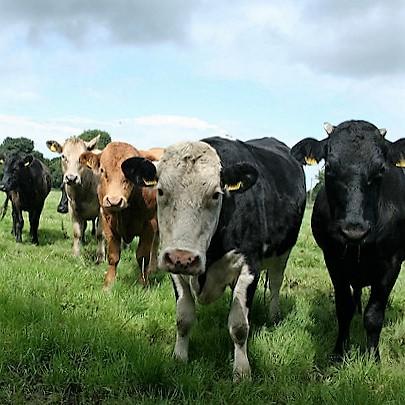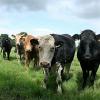A novel treatment for MERS-CoV that uses cattle antibodies to treat the virus in humans has shown to be safe and well-tolerated in a phase 1 clinical trial, according to a study published in The Lancet Infectious Diseases yesterday.
Researchers performed a small double-blind, placebo-controlled, single-dose escalation phase 1 trial to test the safety profile of the polyclonal immunoglobulin G (IgG) antibody (SAB-301), a treatment developed from cattle plasma and produced by SAB Biotherapeutics. The phase 1 trial was conducted by the National Institute of Health's National Institute of Allergy and Infectious Diseases (NIAID).
"It was very encouraging to see how well-tolerated this treatment was," said John Beigel, MD, the lead author of the study. "There are limits for a disease like MERS in getting enough plasma from humans to develop an antibody treatment, so to see this do well was a positive."
This is the first time cattle antibodies have been harvested to create a treatment for MERS (Middle East respiratory syndrome). SAB-301 uses cattle that have been genetically altered to contain human antibodies to MERS-CoV, the MERS virus. Using cattle allows researchers to gather a large number of antibodies and is a relatively quick process, with the polyclonal therapy taking only about 3 months to manufacture.
"That's a very quick timeline for any sort of antibody therapy," said Beigel, who is at Leidos Biomedical Research of Frederick, Md., supporting the NIAID.
MERS was first documented in Saudi Arabia in 2012. The coronavirus is highly contagious in healthcare settings, and has a case-fatality rate of approximately 35%. Currently there are no treatments or vaccine for the virus.
In the study, 28 healthy volunteers received a single injection of the antibody therapy in doses ranging from 1 milligram per kilogram (mg/kg) to 60 mg/kg. Ten participants were treated with placebo. Most side effects documented were mild. About 20% of study participants reported a headache, while 11% had symptoms similar to the common cold, which can be caused by coronaviruses.
All subjects who received a dose of the antibody treatment showed anti-MERS neutralizing antibody titers that correlated with serum SAB-301 concentrations. Moreover, Beigel said, the treatment had a long half-life of 28 days.
"That's a good amount of time through an acute illness to get the antibodies on board," Beigel said.
Other implications for emerging diseases
Beigel said that the next step for SAB-301 is to test the treatment in study populations faced with MERS, likely in Saudi Arabia. And if the treatment proves successful, it could mean transchromosomic cattle, and their antibodies, could be used to treat other infectious diseases, including severe acute respiratory syndrome (SARS), Ebola, and pandemic influenza.
"Our study is noteworthy not only by advancing a potential therapeutic for MERS, but also by showing the potential safety of a novel production platform that can quickly generate a new putative drug candidate to an emerging infectious disease," Beigel and his co-authors concluded in the study.
See also:
Jan 9 Lancet Infect Dis study
Jan 9 Lancet Infect Dis commentary





















